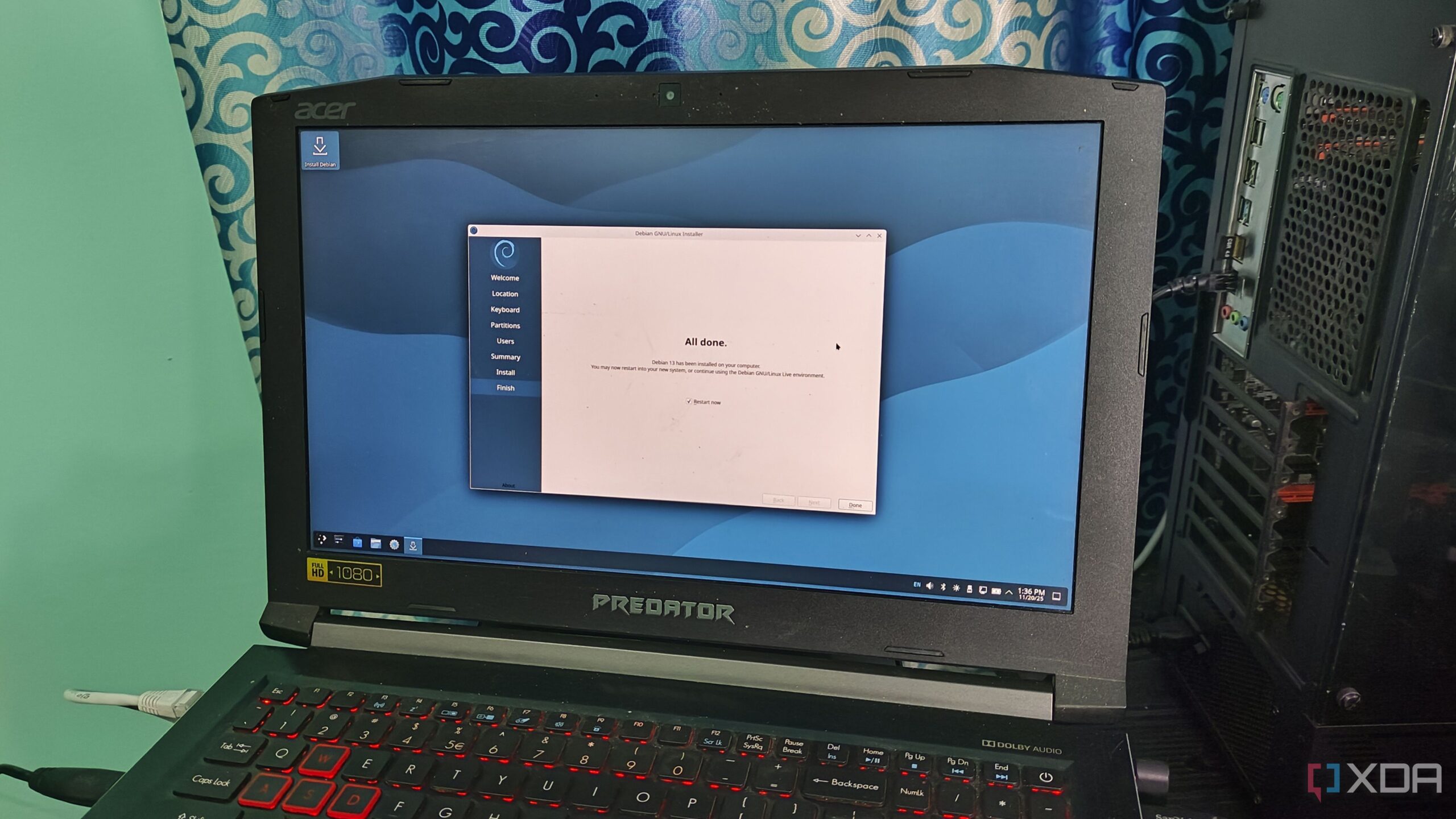UPDATE: A tech enthusiast has successfully transformed an outdated Acer Predator Helios 300 laptop into a versatile Linux server, showcasing the potential of repurposing older hardware for modern computing needs. This development, which took place last week, highlights the growing trend of utilizing old devices to enhance home lab environments.
The laptop, originally released in 2017, was deemed obsolete for gaming but found new life as a self-hosting system. After an evening filled with troubleshooting, the transformation was complete, enabling the user to deploy essential home lab tools and troubleshoot effectively without relying on other devices.
The process began when the owner uncovered the laptop while cleaning their apartment, leading to an exploration of various Linux distributions. Initially, the user attempted to install DietPi, but faced significant booting issues. After several frustrating hours, they shifted gears and opted for the more universally compatible Debian distribution.
Debian’s installation proved to be a game-changer. The laptop booted successfully, allowing the user to access a graphical interface powered by KDE Plasma. This setup provided a seamless environment to deploy containers using Docker, a critical tool for self-hosting applications.
With the installation completed, the tech tinkerer began spinning up containers for essential monitoring tools. Notably, they installed Pulse for Proxmox server management and Watchtower for automated container updates. The laptop now serves dual purposes as both a self-hosting hub and a troubleshooting machine, equipped with tools like Gparted for drive management and Wireshark for network traffic analysis.
The implications of this project extend beyond personal enjoyment; it serves as a compelling reminder of the potential benefits of recycling old tech. As global environmental concerns mount, finding innovative uses for outdated devices can help reduce electronic waste while fostering a culture of sustainability among tech enthusiasts.
This exciting development is part of a broader movement where individuals are encouraged to explore the capabilities of older hardware rather than discarding it. By sharing this experience, the user hopes to inspire others to delve into the world of self-hosting, proving that even older machines can thrive in today’s tech landscape.
Stay tuned for more updates on innovative tech projects that redefine the boundaries of home computing. This story is a testament to the creativity and resourcefulness of tech enthusiasts worldwide, encouraging all to look beyond the surface of their aging devices.
